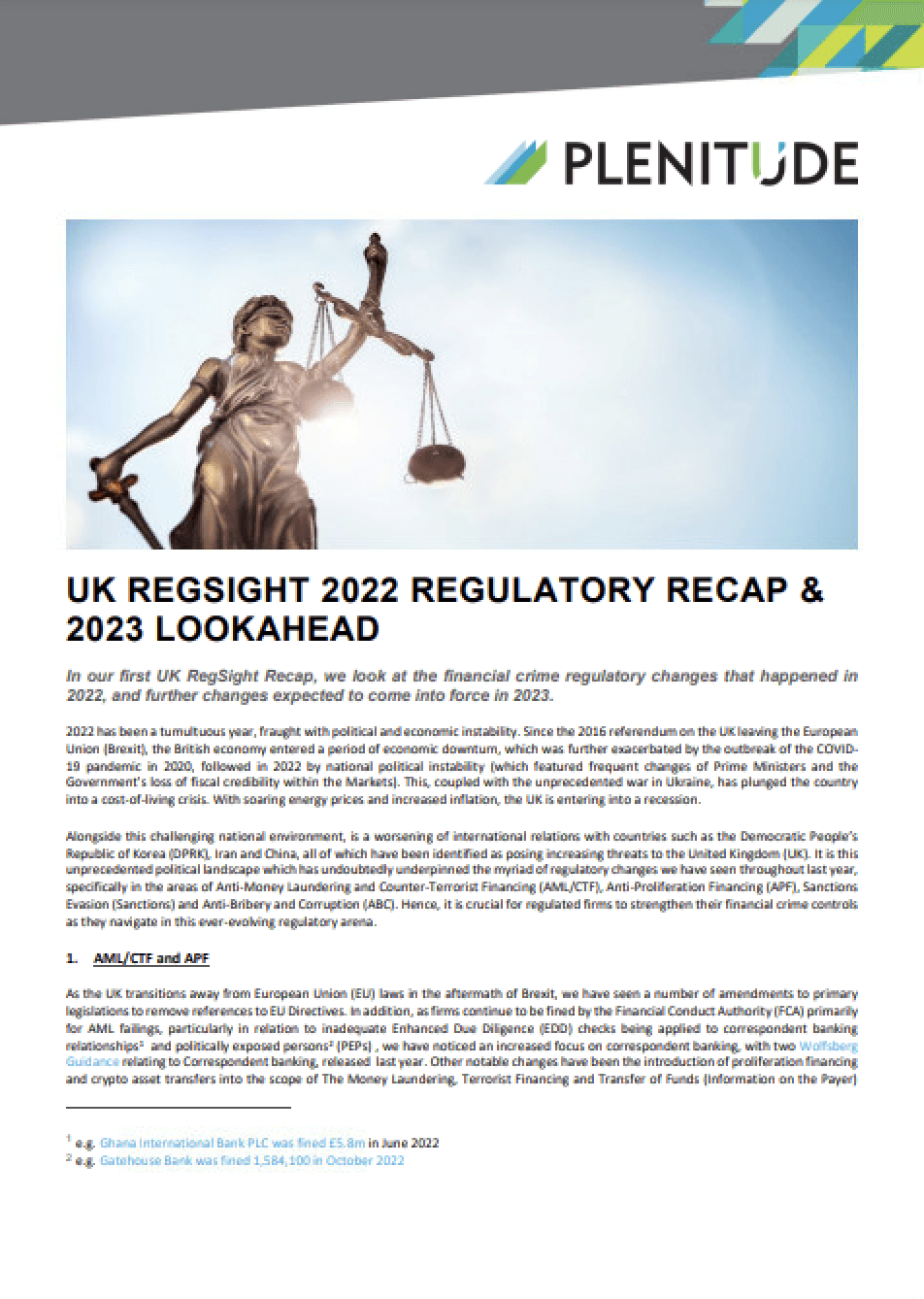2022 has been a tumultuous year, fraught with political and economic instability. Since the 2016 referendum on the UK leaving the European Union (Brexit), the British economy entered a period of economic downturn, which was further exacerbated by the outbreak of the COVID- 19 pandemic in 2020, followed in 2022 by national political instability (which featured frequent changes of Prime Ministers and the Government’s loss of fiscal credibility within the Markets). This, coupled with the unprecedented war in Ukraine, has plunged the country into a cost-of-living crisis. With soaring energy prices and increased inflation, the UK is entering into a recession.
Alongside this challenging national environment, is a worsening of international relations with countries such as the Democratic People’s Republic of Korea (DPRK), Iran and China, all of which have been identified as posing increasing threats to the United Kingdom (UK). It is this unprecedented political landscape which has undoubtedly underpinned the myriad of regulatory changes we have seen throughout last year, specifically in the areas of Anti-Money Laundering and Counter-Terrorist Financing (AML/CTF), Anti-Proliferation Financing (APF), Sanctions Evasion (Sanctions) and Anti-Bribery and Corruption (ABC). Hence, it is crucial for regulated firms to strengthen their financial crime controls as they navigate in this ever-evolving regulatory arena.
Conclusion
The past year has seen a number of legislative shifts and introductions – from the amended MLRs requiring firms to include proliferation financing in their ongoing risk assessments, to the expanded list of high risk third country jurisdictions, and most critically, ongoing sanction implementation packages. The UK Financial Services Industry has fast acknowledged sanctions as a critical risk to their business through the impact of Russia sanctions as well as the rising domestic and international tensions with other nations. The sanctions and overall regulatory landscape in 2022 provided a level of complexity at a scale, speed and scope that has challenged the traditional compliance approach, highlighting a number of crucial opportunities for improved reform.
Recent announcements such as Treasury’s Edinburgh Reforms, have emphasized a commitment to strengthening the UK’s position as a global financial centre, with dedicated attention on post-Brexit reforms. These reforms aim to boost the UK’s overall growth and competitiveness, expand regulatory remits of regulators and harness the benefits of emerging technology – all of which will provide new opportunities and challenges for firms working within the financial space. The ever changing regulatory landscape illustrates the complex nature of compliance – firms must continue to learn from the shortcomings of both themselves and their peers, pushing beyond tick box approaches and instead ensuring that compliance control measures are woven into the framework of their everyday operations. The regulatory landscape will be defined by not only a response to ongoing global and national challenges, but also by the opportunity to cement the UK as a global financial centre, independent of its previous commitments to the EU. The landscape calls for embracing new capabilities while also reinforcing the need to strengthen existing practices.



 Claire Ijeh
Claire Ijeh
 Plenitude Insights
Plenitude Insights Sanctions
Sanctions RegSight
RegSight



